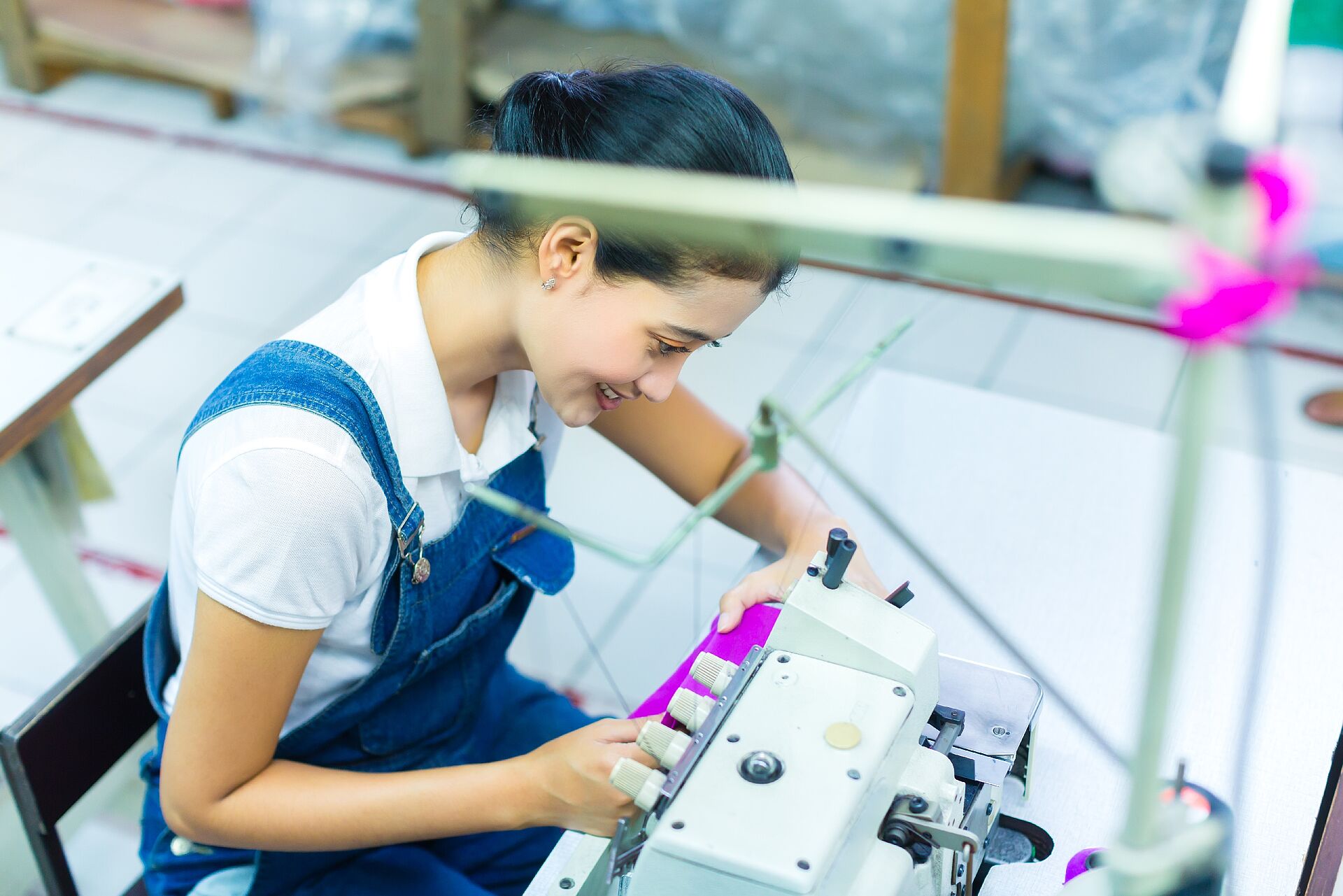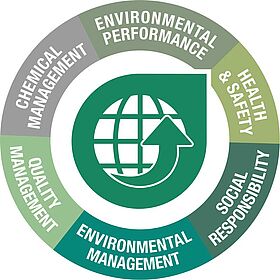Sustainable Textile and Leather Production

What is STeP?
OEKO-TEX® STeP stands for "Sustainable Textile and Leather Production" and is an independent certification system for production facilities along the textile and leather supply chains who want to ensure and transparently communicate their environmentally friendly manufacturing processes and socially responsible working conditions.
Please choose HOHENSTEIN as you partner laboratory when completing the online form.
Further specifications
Compared to other available certification systems, STeP is specifically tailored to the needs of the textile and leather industries. Based on a modular and holistic approach, STeP ensures a comprehensive analysis and assessment of production facilities along the entire supply chain by scrutinising all the necessary aspects of sustainable manufacturing. The six modules of STeP certification include:
- Chemical management
- Environmental performance
- Environmental management
- Social responsibility
- Occupational health & safety
- Quality management
After an online-assessment carried out by the company, our auditors validate the provided data on-site in the facilities. On the certificate, the degree of sustainability achieved by the production facility is shown in the form of a transparent three-stage scoring system, which lists the results for each single module and the company as a whole.
How can STeP certification support you?
STeP certification allows manufacturers, brands and retailers to establish and continuously improve ecological manufacturing processes, socially responsible working conditions and worker safety in their supply chain’s production facilities. Third-party certification, regular updates to the STeP criteria and a built-in benchmarking provided by the certification tool help certified manufacturers back their competitive position gained by optimised and efficient production processes.
Basic facts
Validity
The STeP certificate is issued after a production facility has been successfully audited and is valid for three years. This period can always be extended for an additional three years following successful re-certification. If problems are identified at any point during the certification process, an OEKO-TEX® STeP certificate may be revoked.
Target group
STeP certification is open to every production facility along the textile and leather supply chains who want to analyse and evaluate their production and working conditions.
- Dry spinning, twisting and related processes
- Wet spinning and related processes
- Weaving, knitting, production of non-wovens and related processes
- Dyeing, printing, finishing, coating and related processes
- Making up of products through cutting, sewing and related processes
- Beamhouse
- Tanning
- Retanning, dyeing, fatliquoring
- Finishing of leather
- Making up of leather products
- Manufacturing of accessories (e.g. zips, buttons, labels)
- Manufacturing of foams and mattresses
- Textile & leather logistics
- Other (e.g. non-agricultural fibre production)
STeP certification is currently unavailable for agricultural processes such as the cultivation of cotton or the production of sheep’s wool and downstream stages such as transportation.
Criteria / Requirements
STeP certification requires compliance with environmental and social criteria in six modules. The minimum requirements include:
Chemical management
- The introduction of a suitable chemical management system
- Compliance with the Manufacturing Restricted Substances List (MRSL)
- Regular chemical handling training (basic and advanced)
- Transparent communication and control of the chemicals used and their associated risks
- Monitoring of chemical usage, the procurement of chemicals and auxiliary agents and their storage and application
Environmental performance
- Compliance with the stipulated limit values (wastewater, emissions, etc.)
- The use of production systems and equipment that meet the latest standards of technology
- Efficient use of resources
- Reduction of the carbon footprint
Environmental management
- Implementation of existing environmental management systems for the systematic coordination and implementation of all environmental protection measures
- Definition of environmental objectives
- Regular creation of environmental reports
Social responsibility
- Ensuring socially acceptable working conditions in line with UN human rights conventions and ILO core labor standards
- Implementing management systems for continuously improving working conditions
- Complying with strict requirement for working hours, wages, etc.
- Involving local stakeholders
Occupational health and safety
- Implementation of recognised safety standards (example: based on OHSAS 18001)
- Measures for ensuring safety at the workplace and personal protective equipment
- Ensuring the safety of buildings and production plants (e.g. through construction measures, escape plans, separation of production areas, etc.)
Quality management
- Implementation of a QM system in line with ISO 9001 or other operational methods
- Guaranteed traceability, responsibility and appropriate documentation regarding the flow of goods and manufactured products
- Further reaching management issues such as risk management and corporate governance, including anti-corruption and company codes of conduct
Certification process
- Application
The applicant completes the online application form on the OEKO-TEX® website.
Please select Hohenstein in the provided field where you can select the laboratory you would like to work with. - Assessment
The applicant completes the online questionnaire and provides all necessary evidence in the system where needed. - Analysis by Hohenstein
We evaluate all information and data submitted by the applicant. - On-site audit
Our STeP auditor verifies the applicant's data on-site in the relevant production facilities. - Evaluation
Our STeP auditor creates a detailed report and informs the applicant about necessary corrective measures. - Issue of certificate
We issue the final report and the STeP certificate for you.
Your benefits at a glance
- STeP certification is specially tailored to conditions in the textile, leather and apparel industries.
- STeP supports a comprehensive analysis and evaluation of sustainable production conditions.
- STeP helps manufacturers throughout the supply chain improve efficiency in production processes.
- STeP continuously improves production facilities' environmental performance and working conditions.
- Used by global brands and retailers, STeP helps to find independently verified suppliers that meet environmental protection and social responsibility requirements.
- By means of the illustrative scoring on the certificate, STeP clearly shows which areas of operation are in need of further improvements.
- Additionally, transparent key performance indicators of the STeP certification system enable you to identify possible risks in your production facilities.
- STeP enables a credible documentation of sustainability efforts to the supply chain (certification) and to consumers (MADE IN GREEN label).
- STeP facilitates trust for entering new markets and partnerships through independent verification.


